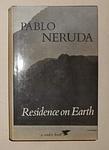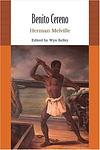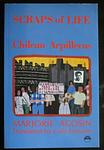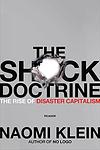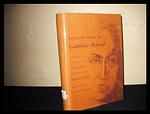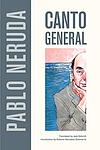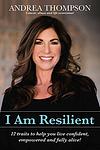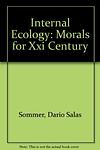The Greatest "Chile" Books of All Time
Click to learn how this list is calculated.
This list represents a comprehensive and trusted collection of the greatest books. Developed through a specialized algorithm, it brings together 284 'best of' book lists to form a definitive guide to the world's most acclaimed books. For those interested in how these books are chosen, additional details can be found on the rankings page.
Genres
The "Chile" category in books encompasses a diverse range of literature connected to the South American country known for its long, narrow strip of land that stretches between the Andes mountains and the Pacific Ocean. This genre includes works by Chilean authors, historical accounts, cultural studies, travel guides, and political analysis. It covers a variety of subjects such as the nation's rich literary tradition, with Nobel laureates like Pablo Neruda and Gabriela Mistral; the tumultuous political landscape marked by the dictatorship of Augusto Pinochet; the unique geography and biodiversity; and the vibrant indigenous Mapuche heritage. Books in this category offer readers insights into the soul of Chile, from its poetic landscapes and urban dynamics to its complex social and political fabric, providing a multifaceted exploration of Chilean identity, resilience, and creativity.
Countries
Date Range
Reading Statistics
Click the button below to see how many of these books you've read!
Download
If you're interested in downloading this list as a CSV file for use in a spreadsheet application, you can easily do so by clicking the button below. Please note that to ensure a manageable file size and faster download, the CSV will include details for only the first 500 books.
Download-
1. The House of the Spirits by Isabel Allende
"The House of the Spirits" is a multi-generational saga that explores the lives of the Trueba family, set against the backdrop of political upheaval in an unnamed Latin American country. The narrative is driven by the family's strong and magical women, including clairvoyant Clara and her granddaughter Alba. The story spans over three generations, weaving together personal, social, and political threads, and is rich in elements of magical realism. The novel explores themes of love, violence, social class, and the struggle for power.
-
2. Poems of Pablo Neruda by Pablo Neruda
This book is a collection of poetry by a renowned Chilean poet who is known for his passionate, intense, and deeply emotional verses. The poems touch on a variety of themes, including love, nature, politics, and the human condition. The poet's unique style, which combines vivid imagery, profound emotion, and a deep connection with the natural world, is evident in each of the pieces in this collection.
-
3. The Voyage of the Beagle by Charles Darwin
This book is a vivid and exciting travel memoir as well as a detailed scientific field journal covering biology, geology, and anthropology that demonstrates the author’s keen powers of observation, written at a time when Western Europeans were still discovering and exploring much of the rest of the world. The author's five-year journey took him from the coasts of South America, Australia, and Africa to the South Pacific islands, during which he collected and documented the natural history of these areas. The voyage and the specimens he brought back would later form the basis for his famous theory of evolution.
-
4. Residence on Earth by Pablo Neruda
"Residence on Earth" is a collection of poems that delve into the human condition, exploring themes of love, despair, loneliness, and the search for identity and meaning. The poems are characterized by their deep introspection, vivid imagery, and profound emotional resonance. The author's unique style combines surrealism, historical allusions, and a keen observation of the natural world, resulting in a powerful and evocative exploration of the human experience.
-
5. Of Love and Shadows by Isabel Allende
Set against the backdrop of a South American country under a military dictatorship, this novel follows the story of a woman journalist and her lover, a photographer, who, while working together, uncover a hidden mass grave in a remote part of their country. Their discovery leads them into danger as they try to expose the truth about the brutal regime ruling their country, while also dealing with their own personal issues and their growing love for each other. The story is a blend of romance and political drama, showing the power of love and courage in the face of oppression and fear.
-
6. Benito Cereno by Herman Melville
"Benito Cereno" is a novella that tells the story of an American sea captain, Amasa Delano, who comes across a ship in distress off the coast of Chile. The ship, led by Captain Benito Cereno, appears to be in a state of disarray, with a mixed crew of Spanish sailors and African slaves. Throughout the story, Delano is kept in the dark about the true state of affairs on the ship, and it's only at the very end that he discovers a shocking truth - the slaves have revolted and are in control, with Cereno their captive. The novella is a tense exploration of power dynamics, race, and the nature of freedom.
-
7. El Hermano Asno by Eduardo Barrios
This novel delves into the life of a man who, after experiencing a profound personal crisis, decides to retreat into a monastic life in search of spiritual solace and meaning. Set against the backdrop of early 20th-century Chile, the narrative explores themes of faith, redemption, and the eternal struggle between carnal desires and spiritual aspirations. Through the protagonist's journey, the story examines the complexities of human nature, the quest for inner peace, and the possibility of finding redemption through self-sacrifice and devotion. The novel is a poignant reflection on the human condition, highlighting the challenges and contradictions that come with the pursuit of a spiritual life in a material world.
-
8. New Islands And Other Stories by María Luisa Bombal
"New Islands and Other Stories" is a collection of evocative short stories that delve into the lives of women, exploring themes of love, isolation, and the search for identity against the backdrop of the lush South American landscape. The narratives often blend reality with fantasy, creating a dreamlike atmosphere that reflects the inner turmoil and desires of the protagonists. Through her lyrical prose, the author examines the complex emotional landscapes of her characters, revealing the ways in which they navigate the constraints of their societal roles and personal relationships. The stories are a testament to the struggles and resilience of women, and a portrayal of the transformative power of the imagination.
-
9. La Brecha by Mercedes Valdivieso
"La Brecha" is a groundbreaking Chilean novel that delves into the life of a middle-class woman who, after years of conforming to traditional gender roles and a subservient position within her marriage, begins to question the societal norms that have long dictated her existence. As she becomes increasingly aware of the oppressive structures surrounding her, she embarks on a journey of self-discovery and liberation. The novel explores themes of feminism, identity, and personal freedom, challenging the status quo of the time and advocating for the empowerment of women to break free from the constraints imposed by a patriarchal society.
-
10. Scraps Of Life by Marjorie Agosín
"Scraps of Life" is a poignant collection of testimonies and reflections on the harrowing experiences of Chilean women who endured the brutality of the Pinochet dictatorship. Through a tapestry of personal narratives, poems, and letters, the book gives voice to the pain, resilience, and unyielding hope of these women as they navigate the aftermath of political repression and personal loss. The work serves as a powerful testament to the strength of the human spirit and the enduring quest for justice and memory in the face of unspeakable atrocities.
-
11. The Shock Doctrine: The Rise of Disaster Capitalism by Naomi Klein
This book explores the concept of "disaster capitalism", the idea that global capitalism thrives on disaster and chaos. The author argues that free market policies are often pushed through while countries are reeling from wars, natural disasters, or economic crises. She provides a historical analysis of these events, from Chile in the 1970s, to Russia in the 1990s, to the war in Iraq, demonstrating how governments and corporations exploit these periods of shock to implement economic reforms that would otherwise be rejected.
-
12. Selected Poems of Gabriela Mistral by Gabriela Mistral
This book is a compilation of selected poems by a renowned Latin American poetess, who was the first Latin woman to win the Nobel Prize in Literature. The collection features a wide range of themes including love, sorrow, nature, and death. Her unique poetic style, often characterized by emotive language and vivid imagery, has made her a significant figure in the world of literature.
-
13. In Patagonia by Bruce Chatwin
In this travelogue, the author embarks on a journey through the remote and enigmatic region of Patagonia, located at the southern tip of South America. Blending history, legend, and personal anecdotes, the narrative weaves through the diverse landscapes and cultures of the area, as the author encounters a cast of intriguing characters, from outlaws to settlers, all while searching for traces of its storied past. The book is as much an exploration of the author's wanderlust and love for adventure as it is a portrait of the rugged, windswept terrain and the resilient spirit of the Patagonian people.
-
14. Twenty Love Poems And A Song Of Despair by Pablo Neruda
This collection is a poignant exploration of love in its various forms, from the intoxicating thrill of youthful passion to the profound depths of heartache and loss. The poems weave a tapestry of emotion, blending sensuality with a deep connection to nature and the human experience. The verses are characterized by their vivid imagery and emotional intensity, culminating in a final song that laments unrequited love and the pain of solitude. The work has resonated with readers for its raw honesty and lyrical beauty, establishing it as a timeless ode to the complexities of love.
-
15. Canto General by Pablo Neruda
"Canto General" is an epic poem that delves into the rich and tumultuous history, culture, and nature of Latin America. Through its lyrical and powerful verses, the work explores the struggles and identities of the continent's people, spanning from the ancient civilizations to the political upheavals of the 20th century. The poet weaves a tapestry of images and emotions that celebrate the beauty of the land while also critiquing the forces of oppression and colonialism. This sweeping poetic narrative serves as both a homage to the resilience of the human spirit and a call to action for justice and liberation.
-
16. The Obscene Bird Of Night by José Donoso
This novel is a labyrinthine exploration of identity, madness, and the nature of reality, told through the fragmented narrative of a reclusive man who has lived his life in seclusion on a decrepit estate. As the protagonist delves into his past, he recounts his experiences among the deformed and the destitute, the aristocracy and the servants, while grappling with his own fears and illusions. The narrative weaves a tapestry of grotesque imagery, mythological allusions, and a collapsing social order, challenging the reader to distinguish between truth and fabrication in a world where the boundaries of sanity are blurred.
-
17. Fully Empowered by Pablo Neruda
"Fully Empowered" is a collection of poetry that explores the themes of political engagement, love, and the human condition. The poems reflect the author's deep commitment to social justice and his belief in the power of the individual to effect change. With rich imagery and passionate language, the poet weaves together personal and collective experiences, highlighting the struggles and triumphs of the marginalized. The work serves as a testament to the resilience of the human spirit and the enduring quest for freedom and empowerment.
-
18. Paula by Isabel Allende
The book is a deeply personal memoir in which the author recounts the tragic experience of her daughter falling into a coma due to a rare illness. As her daughter lies in the hospital, the author begins to write a poignant letter that evolves into a narrative of her family's history, her own life story, and the political and cultural upheavals that shaped her world. Through this intimate narrative, she explores themes of love, loss, and resilience, offering a raw and heartfelt reflection on the events that have defined her life and the unbreakable bonds of family.
-
19. Internal Ecology Morals For Xxi Century by Dario Salas Sommer
This book delves into the intricate relationship between individual moral development and the broader ecological balance of our planet, proposing that the environmental crises of the 21st century are deeply intertwined with the moral and ethical decay observed in contemporary society. The author argues that by fostering a deeper understanding of our internal ecology—our thoughts, emotions, and spiritual well-being—we can cultivate a more harmonious relationship with the external world. Through a blend of philosophical insight and practical guidance, the text invites readers to embark on a journey of personal transformation as a foundational step towards addressing the global environmental challenges of our time, emphasizing the critical role of individual responsibility and ethical conduct in shaping a sustainable future.
-
20. Distant Star by Roberto Bolaño
"Distant Star" is a chilling novel set in Chile following the 1973 coup that overthrew Salvador Allende. The story focuses on a character who uses his position as a member of the Chilean Air Force to commit heinous acts of violence. His fascination with poetry and aerial acrobatics is interwoven with his terrifying actions, creating a disconcerting contrast. The narrative explores the horrific realities of political upheaval, the fine line between art and brutality, and the long-lasting effects of trauma.
-
21. Death And The Maiden by Ariel Dorfman
In a post-dictatorship country, a former political prisoner, Paulina, encounters a man whom she believes to be her former torturer. She takes him captive and subjects him to a mock trial, seeking justice for the atrocities she endured. As the tension escalates, the play delves into themes of truth, revenge, and the complex aftermath of trauma, challenging the audience to question the blurred lines between victim and perpetrator in a society grappling with its dark past.
-
22. A Brief History Of Neoliberalism by David Harvey
This book provides a critical examination of neoliberalism, tracing its origins and development from the late 20th century to its pervasive influence on global economics and politics. The author argues that neoliberalism, a doctrine advocating for free markets, deregulation, and reduction in government spending, has concentrated wealth and power in the hands of a few, leading to increased social inequality and environmental degradation. Through a detailed analysis of various countries' experiences, the book highlights the consequences of neoliberal policies and calls for a reevaluation of the current economic paradigm to address its shortcomings and create a more equitable and sustainable future.
-
23. Alive by Piers Paul Read
"Alive" is a gripping true story of survival, recounting the harrowing ordeal of a Uruguayan rugby team whose plane crashes in the Andes mountains in 1972. Stranded for over two months in the harsh, freezing wilderness, the survivors face unimaginable hardships, including avalanches, starvation, and the devastating decision to resort to cannibalism to stay alive. The book is a testament to the strength of the human spirit and the will to survive against all odds.
-
24. Upheaval by Jared Diamond
This book delves into how nations cope with crises and the factors that determine their success or failure in overcoming them. By examining several countries' responses to profound upheavals, the author identifies a set of common challenges and solutions that can guide societies facing similar issues. Drawing parallels between personal psychological coping mechanisms and the ways countries navigate crises, the book offers a unique perspective on resilience, adaptation, and the critical choices that shape the destinies of nations. Through detailed case studies, it explores the complex interplay between national identity, societal flexibility, and the capacity for self-assessment, ultimately providing insights into the processes that enable societies to survive and thrive in the face of adversity.
Reading Statistics
Click the button below to see how many of these books you've read!
Download
If you're interested in downloading this list as a CSV file for use in a spreadsheet application, you can easily do so by clicking the button below. Please note that to ensure a manageable file size and faster download, the CSV will include details for only the first 500 books.
Download


